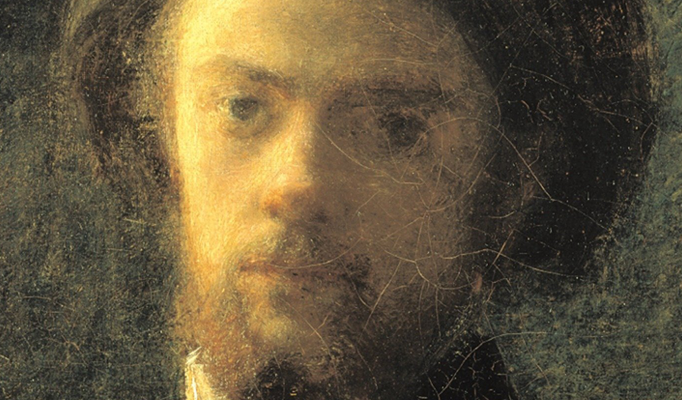
In Dostoevsky’s favorite novel The Idiot, we meet Prince Myshkin, a Christ-like person whose goodness, open-heartedness, and genuineness lead people to call him an idiot sixty times in the novel. Dostoevsky saw Myshkin as his best and richest poetic idea. Three times in his notes, Dostoevsky identifies Myshkin as a Christ figure. Like Jesus, he was full of child-like grace and truth. In his blueprints, Dostoevsky refers to Myshkin as “Prince Christ”: “Christ is and always will be the ideal, ours (in Russia) or that of civilized Europe.”
Myshkin had just returned to St. Petersburg, the Russian Capital, after five years away in a Swiss sanitorium for epileptics. In the midst of great corruption, Jesus the Word became flesh and made his dwelling among us (John 1:14). So too, Myshkin came to dwell in the midst of a cynical, jaded world. As the epicentre of the Russian political world, St. Petersburg was full of clever pretenders, politicians, and posers who hid in plain view from each other: “For the wisdom of this world is foolishness in God’s sight.” (1 Corinthians 3:19) Myshkin exposed the nakedness of the ‘kings with no clothes.’ No one could hide from his loving gaze.
Have you ever been foolishly attracted to the world, the flesh and the devil? Has your self-centredness and desire for approval ever harmed your best interests? Why does Christianity often look so foolish to secular people in our hi-tech, frantic world?
Since only the knowledge of the truth can set us free, Myshkin’s speaking truth to power helped a few give up their lies. Most initially clung to their lies, and rejected Myshkin as totally inappropriate and stupidly naïve. His ‘unsuccessful’ encounter with the Russian elite reminds me of John 1:10-11: He was in the world, and though the world was made through him, the world did not recognize him. He came to that which was his own, but his own did not receive him.
Just like with Jesus, Myshkin was the wrong kind of messiah, coming in humility rather than as a conqueror. As a quintessential Russian holy fool, he threatened their love of power, money, and sexual conquest. Everything for this highly politicized culture was an elaborate game of deception and manipulation. Like the power-hungry Pontius Pilate, they had become cynical about the possibility of truth. In their childishness, they rejected Myshkin’s strong wisdom as weakness:
For the foolishness of God is wiser than human wisdom, and the weakness of God is stronger than human strength. (1 Corinthians 1:25)
The French-speaking Russian elite, though clinging to an outward form of religion, had largely become atheistic because of the influence of the French revolution. Even Christianity for these power-brokers became little more than another way to control and subjugate ‘lesser’ people. Dostoevsky believed that western culture was dying because it rejected Jesus: “those who kill God also kill man.”
Dostoevsky drew on the comic figure of Don Quixote in creating his ‘positively good and beautiful’ person:
“There’s nothing more difficult than that in the whole world… There’s only one positively beautiful person in the world – Christ, so that the appearance of this measurelessly, infinitely beautiful person is in fact of course an infinite miracle.”
He saw Don Quixote as the most complete of beautiful people in Christian literature: “…he is only beautiful because he is ridiculous at the same time…” Don Quixote, like Prince Myshkin, was this strange blend of apparent foolishness, and great wisdom. In their fighting the windmills of secularity, neither made any sense to the sophisticated elite. Outwardly, it looked like a useless failure that only made things worse.
Jesus, like Myshkin and Quixote, is the seemingly ‘foolish’ Prince of fools. Will the real fool stand up? How often are we fooled? 1 Corinthians 2:14 puts it:
The person without the Spirit does not accept the things that come from the Spirit of God but considers them foolishness…
Quixote, Jesus, and Myshkin suffer deeply because they ‘foolishly’ love and serve the unlovable. All three were ridiculed, beaten with stones, and betrayed by their most trusted friends.
One is reminded of the suffering servant of Isaiah 53 who was despised and rejected. It reminds us of the apparent foolishness of Jesus’ love on the cross for us:
For the message of the cross is foolishness to those who are perishing, but to us who are being saved it is the power of God. (I Corinthians 1:18)
Jesus, the bridegroom, loves his bride, the very broken, often conflicted Church. Similarly, Myshkin loved his potential bride Nastasia who was very beautiful, but deeply wounded in her soul by sexual exploitation. Myshkin helped open Nastasia’s eyes temporarily to her deep worth, but in her shame, she kept running from Myshkin back to those who would mistreat her. The most beautiful often feel the most ugly and unworthy. We too as the wounded bride of Christ often run from his relentless love.
The problem of the existence of God had long tormented Dostoevsky, the intellectual idiot. He came to a deep faith in Christ through much suffering and questioning as a political prisoner in Siberia: “My hosanna has passed through a great crucible of doubt.” He struggled with irritability and spite, and had a strong gambling addiction that took him many years to break free. Through the example of other faithful prisoners and in reading the New Testament, Dostoevsky:
. . . accepted Christ back into (his) heart, whom (he) had come to know as a child living with my parents and whom (he) almost lost once, because of turning into a ‘European liberal.’”
Dostoevsky wanted all of us to accept the crucified idiot back into our hearts. Imagine how such a heart transformation might affect the Russian/Ukrainian conflict. Have you ever lost the Prince of Peace through giving into cynicism and negativity? What if you opened your heart and mind up again today?

Leave a Reply